Search Results
Showing results 21 to 40 of 158

Moisture Makers
Source Institutions
In this outdoor activity, learners compare the moisture released from different kinds of leaves and from different parts of the same leaf, by observing the color change of cobalt chloride paper.
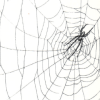
Web It!
Source Institutions
In this outdoor activity, learners investigate spider webs and feeding behavior, particularly how spiders trap food in their sticky silk webs while not getting stuck themselves.

Pitch, Roll and Yaw: The Three Axes of Rotation
Source Institutions
In this activity (page 87 of the PDF), learners move their bodies to better understand the three axes of rotation: pitch, roll and yaw.

Dip Dip, Hooray
Source Institutions
Lakes, streams and other freshwater bodies are a habitat for lots of living things, big and small.
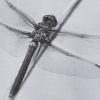
Damsels and Dragons
Source Institutions
In this outdoor activity/field trip, learners conduct experiments to explore where dragonflies and damselflies perch or rest, and how the flies change behavior in reaction to other flies or fly decoys
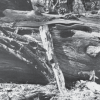
Logs to Soil
Source Institutions
In this outdoor activity, learners cut through and investigate rotten logs and then make log-profile puzzles for each other.

Launch Altitude Tracker
Source Institutions
In this activity, learners construct hand-held altitude trackers. The device is a sighting tube with a marked water level that permits measurement of the inclination of the tube.
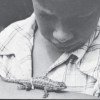
Leapin' Lizards
Source Institutions
In this outdoor activity, learners first explore lizard feeding behavior by creating a "lizard rig" to dangle different objects in front of live lizards and see which objects the lizards try to bite.
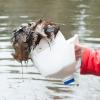
The Scoop on Habitat
Source Institutions
Some aquatic organisms live in open water, while some live in soil at the bottom of a body of water.
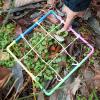
Counting With Quadrants
Source Institutions
Millions of organisms can live in and around a body of water.

Salt Water Revival
Source Institutions
In this outdoor activity, learners visit the intertidal zone of a rocky coastal site well populated with marine organisms.

Plants Around a Building
Source Institutions
In this outdoor activity, learners discover how the environment around a building affects the growth of plants.
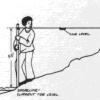
Beach Zonation
Source Institutions
In this outdoor, ocean-side activity, learners investigate the distribution of organisms in the upper region of the intertidal zone.
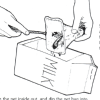
Water Holes to Mini-Ponds
Source Institutions
Dig a hole, line it, fill it with fresh water, and you have a water hole: a good place to study colonization.

Do Your Own Dig
Source Institutions
In this outdoor archaeology activity, learners use mathematical skills and scientific inquiry to generate and process information from their own excavation site.

Pollution Patrol
Source Institutions
In this activity, learners explore how engineers design devices that can detect the presence of pollutants in the air.

Parachutes
Source Institutions
In this activity, learners will investigate air and gravity through the use of various fabrics by through them in the air. Activity includes step-by-step instructions and extension ideas.

Variation Game
Source Institutions
In this set of outdoor games, learners play the role of monkeys that are trying to get enough resources (food, shelter, and space) to survive.
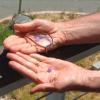
Exploring Ultraviolet (UV) light from the Sun
Source Institutions
In this outdoor activity, learners explore UV rays from the Sun and ways to protect against these potentially harmful rays.

Great Steamboat Race
Source Institutions
In this outdoor activity, learners race small boats, made of cork, balsa wood, popsicle sticks etc., to investigate the rate and direction of currents in a stream or creek.
